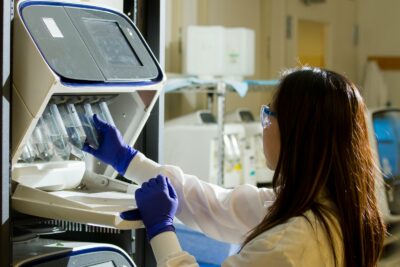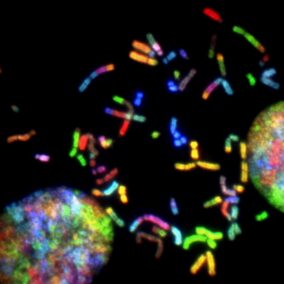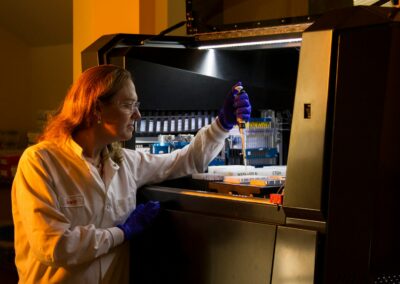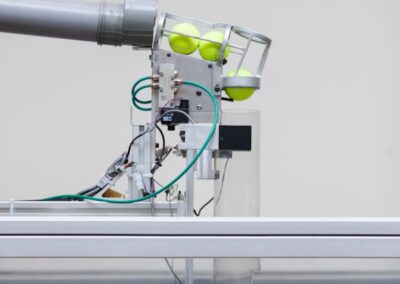Exploring Gene Editing: A Revolution in Healthcare
Gene editing, particularly through technologies such as CRISPR-Cas9, presents a groundbreaking approach to treating hereditary diseases. By precisely altering DNA sequences, gene editing has the potential to eliminate genetic mutations that cause diseases like cystic fibrosis, sickle cell anemia, and Huntington’s disease. In Saudi Arabia and the UAE, where healthcare innovation is rapidly advancing, the adoption of gene editing could significantly improve patient outcomes and reduce the burden of hereditary diseases on healthcare systems.
The primary benefit of gene editing is its ability to provide permanent solutions to genetic disorders. Unlike traditional treatments that manage symptoms, gene editing targets the root cause of diseases by correcting or disabling faulty genes. This transformative capability could lead to cures for conditions previously deemed untreatable, enhancing the quality of life for patients in Riyadh and Dubai. Additionally, gene editing offers the potential for personalized medicine, where treatments are tailored to an individual’s genetic makeup, increasing the efficacy and reducing adverse effects.
Moreover, the economic impact of gene editing cannot be overlooked. By potentially curing hereditary diseases, gene editing can reduce long-term healthcare costs associated with chronic disease management. For business executives and entrepreneurs in the healthcare sector, investing in gene editing technologies and related research could yield substantial returns while contributing to societal well-being. As Saudi Arabia and the UAE continue to position themselves as leaders in medical innovation, embracing gene editing could further solidify their status as pioneers in healthcare excellence.
Risks and Ethical Considerations of Gene Editing
Despite its promising benefits, gene editing carries significant risks and ethical concerns that must be addressed. One of the primary risks involves unintended genetic modifications, which could result in off-target effects and potentially harmful mutations. Ensuring the precision and safety of gene editing technologies is crucial to prevent adverse outcomes. Continuous research and rigorous clinical trials are necessary to refine these techniques and mitigate risks, ensuring that gene editing is both effective and safe for patients.
Ethical considerations also play a crucial role in the discourse surrounding gene editing. The potential for “designer babies,” where genetic modifications are made for non-medical reasons, raises concerns about equity, consent, and the societal implications of genetic enhancements. In Riyadh and Dubai, where cultural and ethical values are deeply rooted, navigating these concerns requires careful consideration and the establishment of robust regulatory frameworks. Engaging stakeholders, including medical professionals, ethicists, and the public, is essential to develop guidelines that balance innovation with ethical responsibility.
Furthermore, accessibility and equity are critical issues in the deployment of gene editing technologies. Ensuring that the benefits of gene editing are available to all segments of society, regardless of socioeconomic status, is paramount. In Saudi Arabia and the UAE, efforts must be made to create inclusive healthcare policies that provide access to cutting-edge treatments for all citizens. Addressing these ethical and equity concerns will be vital in fostering public trust and acceptance of gene editing as a viable medical intervention.
Gene Editing in the Context of Modern Healthcare Technologies
The integration of gene editing with other modern healthcare technologies, such as Artificial Intelligence (AI) and Blockchain, can enhance its potential and address some of its challenges. AI can assist in predicting and analyzing the outcomes of gene editing, improving precision, and reducing the risk of unintended modifications. For example, machine learning algorithms can analyze vast amounts of genetic data to identify optimal editing targets and predict potential off-target effects, thereby enhancing the safety and efficacy of gene editing procedures.
Blockchain technology can play a crucial role in managing the ethical and regulatory aspects of gene editing. By providing a transparent and immutable ledger of genetic modifications and patient consent, Blockchain can ensure accountability and traceability in gene editing practices. This transparency can help address ethical concerns and build public trust in the technology. In regions like Riyadh and Dubai, where technological innovation is embraced, integrating Blockchain with gene editing could set new standards for ethical and responsible healthcare practices.
Additionally, the advent of the Metaverse and Generative Artificial Intelligence (GAI) presents opportunities for virtual simulations and educational platforms to advance gene editing research and public understanding. Virtual environments can facilitate collaborative research, training, and public engagement, fostering a deeper understanding of gene editing and its implications. By leveraging these technologies, Saudi Arabia and the UAE can lead the way in creating a comprehensive ecosystem that supports the safe, ethical, and effective implementation of gene editing in healthcare.
#GeneEditing #HereditaryDiseases #HealthcareInnovation #SaudiArabia #UAE #Riyadh #Dubai #AI #Blockchain #Metaverse #MedicalEthics #PrecisionMedicine























